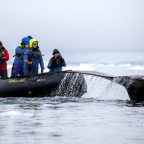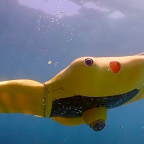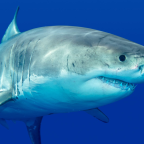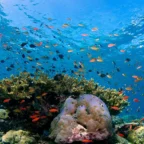
Using wasteful and unregulated methods that leave more than half of their catch to rot, Spanish fishermen are devastating stocks of deep-water sharks in the northeast Atlantic, according to an investigation by Irish, Norwegian and British marine experts.
In two reports produced this year they found that the trawlers frequently leave nets unattended for weeks, even months, in hopes of maximizing profits. They estimate that the practice may have wiped out four-fifths of two threatened species: the leafscale gulper shark and the siki shark, also known as the Portuguese dogfish.
“What they’re doing is not illegal, and that’s the problem,” said Dominic Rihan, fishing gear technologist for the Irish Sea Fisheries Board, who helped produce the report. “The European Union needs to restrict and regulate the fishery properly. Proper regulation would mean that these vessels must deploy a reasonable amount of (netting) gear that can be removed within three days. What they’re doing now…the waste is incredible.”
Initially, both species of shark were caught only for their livers, which contain oil valued by pharmaceutical and cosmetics companies. But increasingly the backs of the sharks are being sold to eat, chiefly in Spain and France. Rihan said the trawlers were deploying far too many nets, marked by buoys, while the EU had no rules restricting the practice. He said the trawlers don’t have enough space to haul back the nets when they land a catch, so instead leave the nets in place while the sharks – as well as lucrative monkfish and deep-sea crab – are frozen and taken back to ports in England, Ireland, Norway and Spain.
He said the practice of leaving nets in place meant that, when the trawlers return to each net, more than half of the sharks caught have already died and grown rotten. Often, he said, the trawlers also flout EU regulations by abandoning damaged nets, which can ensnare sealife at the ocean bottom for years. Rihan added that just last month an Irish Sea Fisheries Board vessel went trawling for dumped or broken deep-sea shark nets in just one section of Irish territorial waters, and pulled up more than 25 miles of nets, which average about 100 yards in length each.
Source: FlyFish News Service at FlyFish.com












Social Profiles